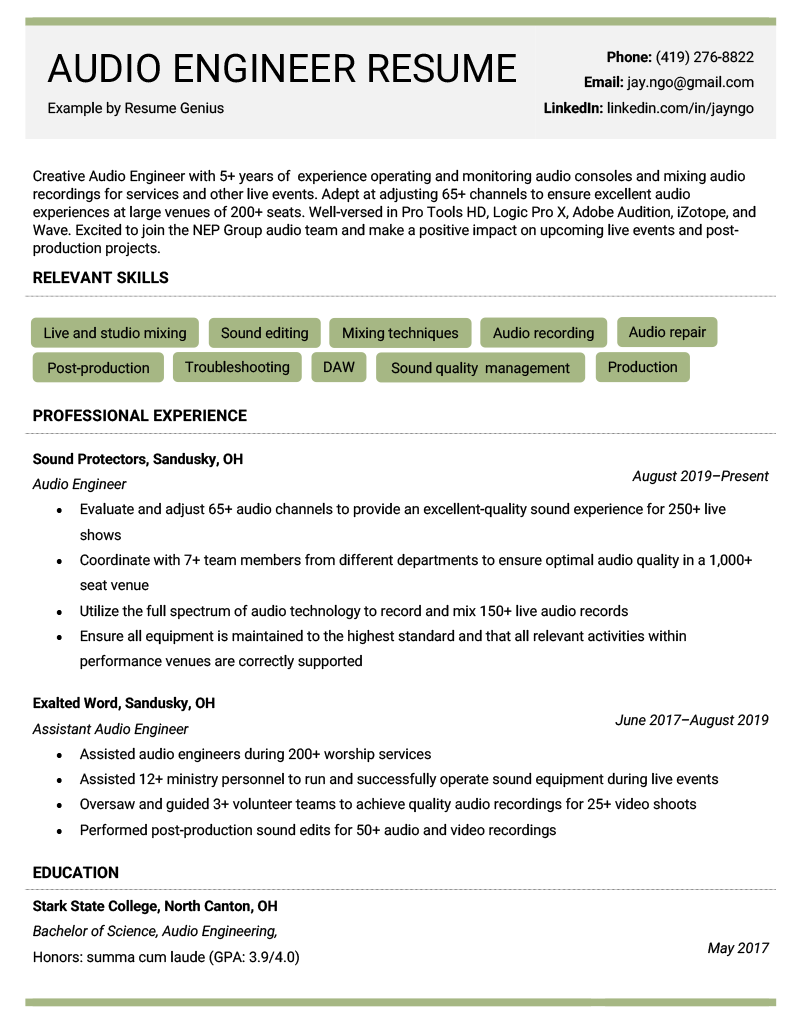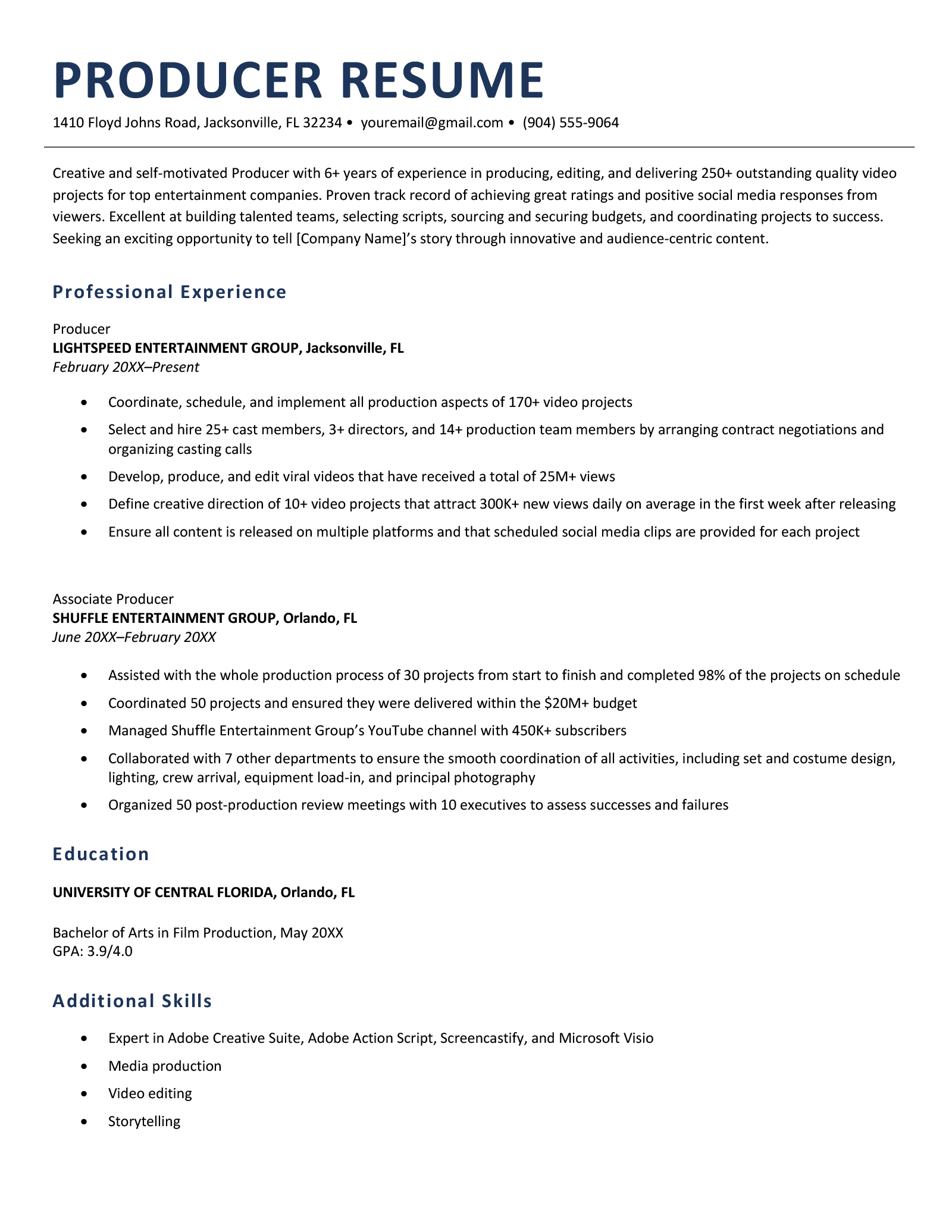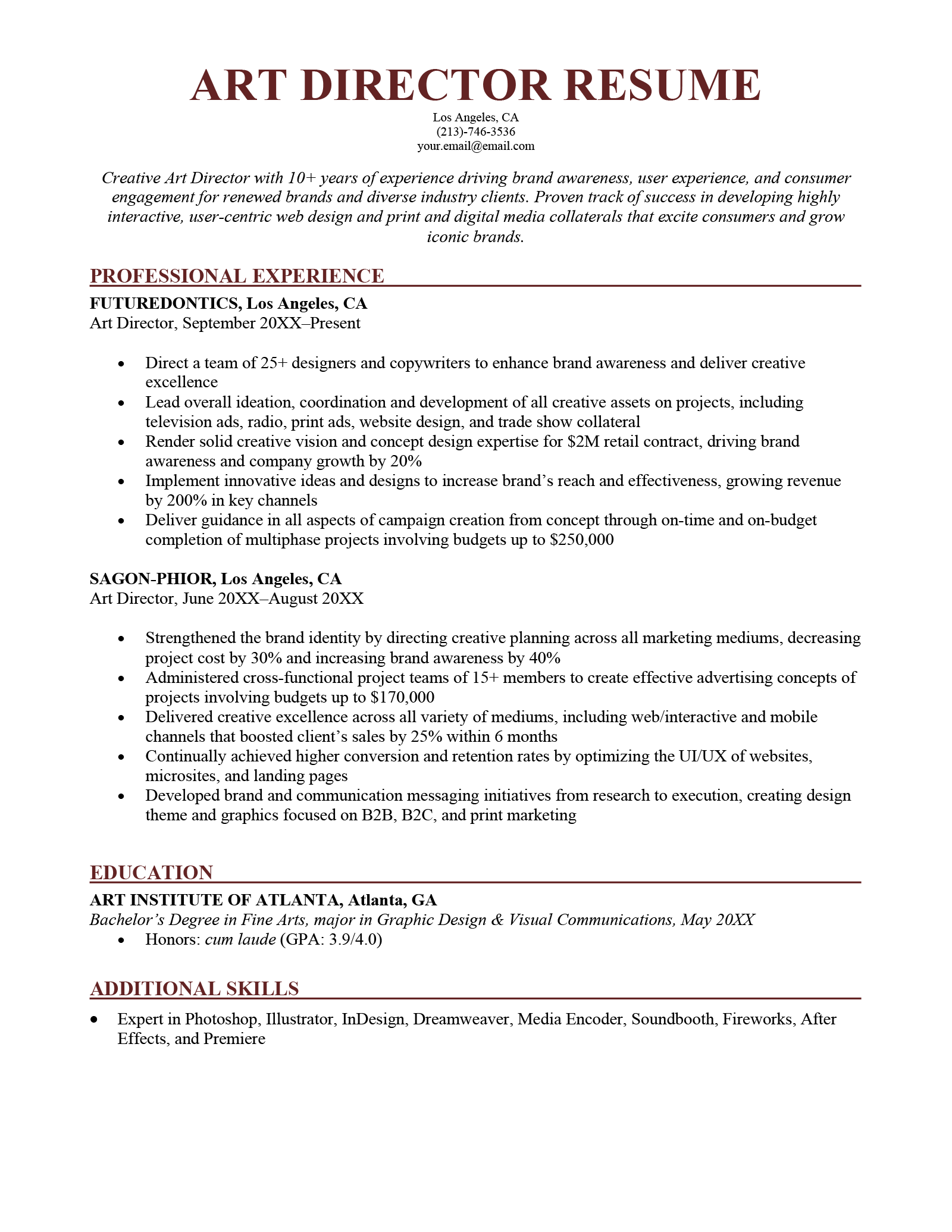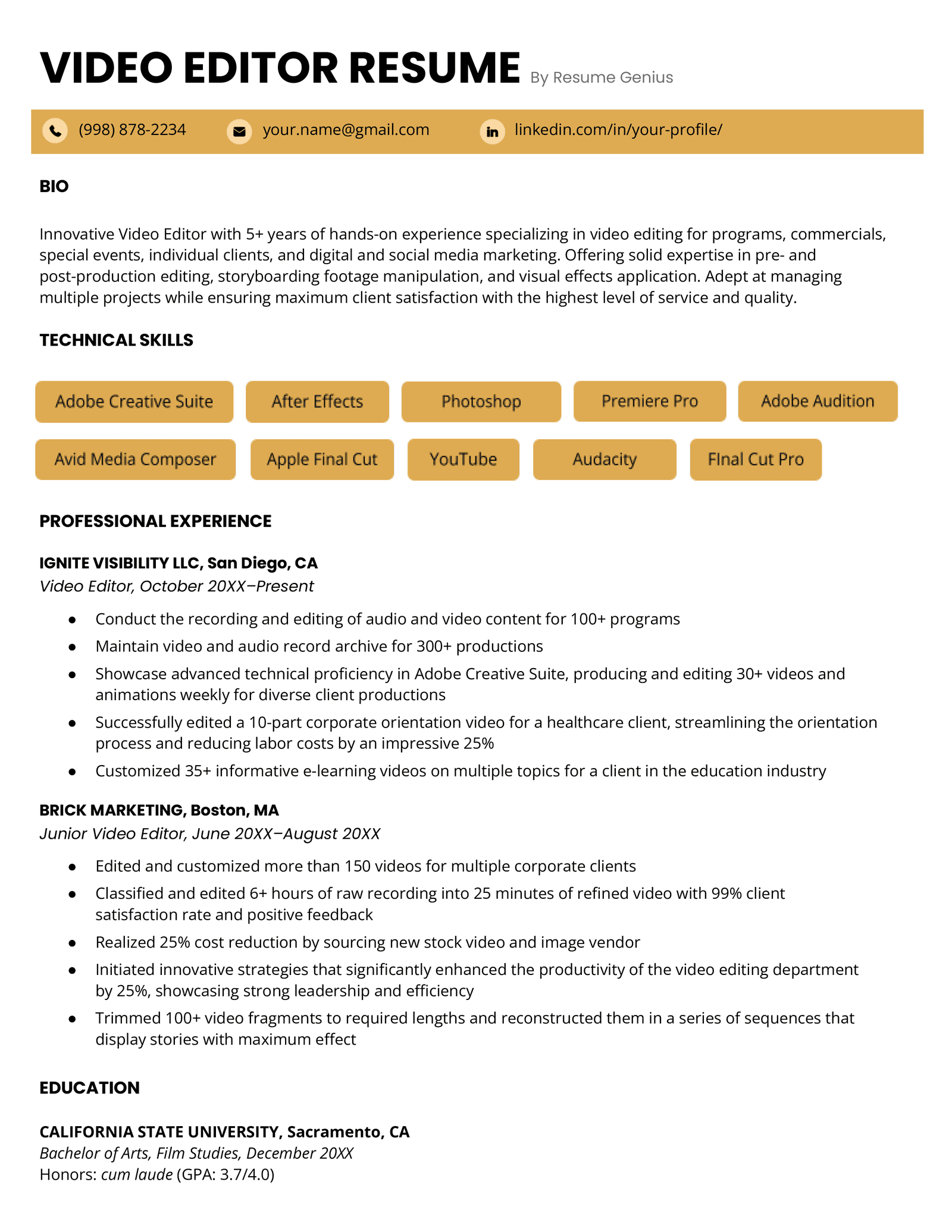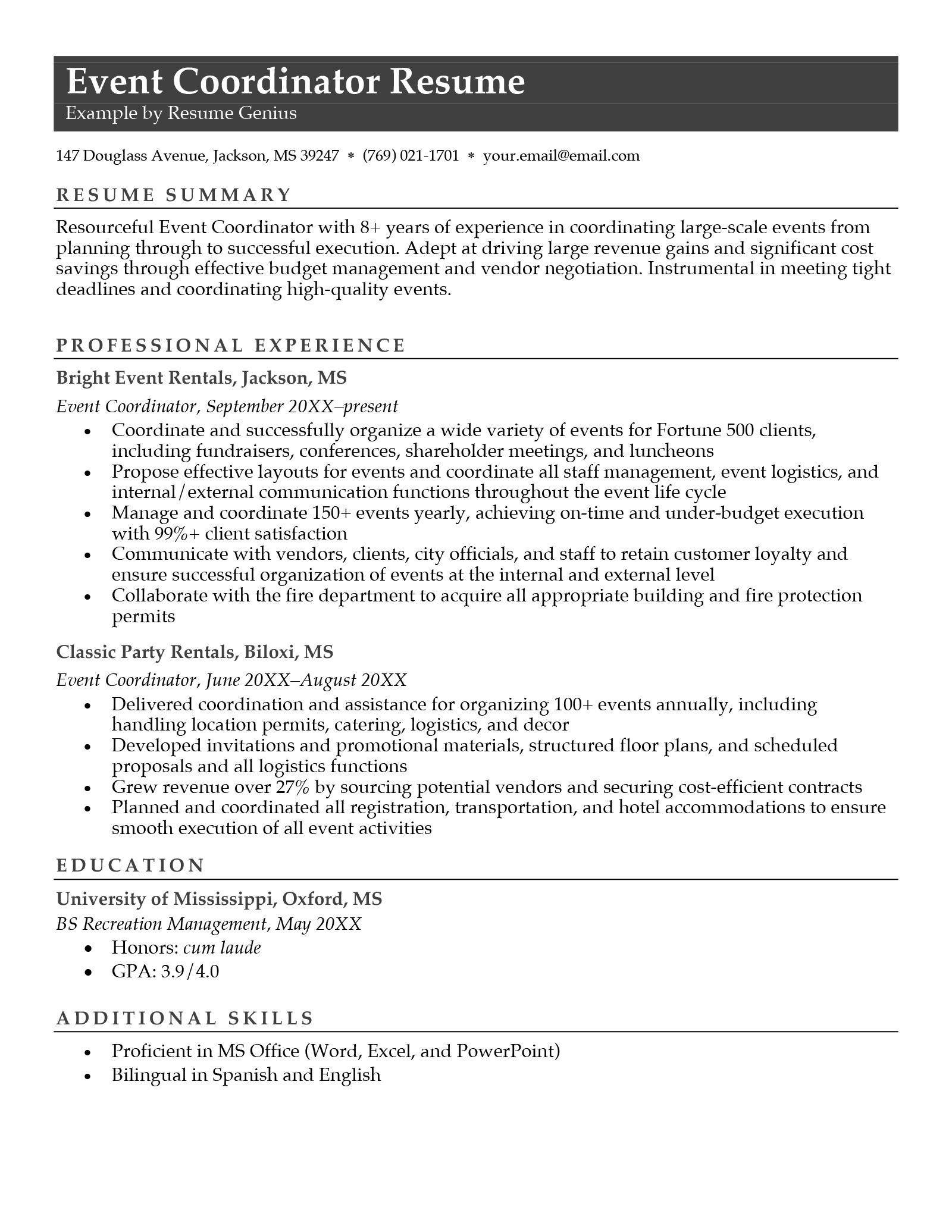Audio Engineer Resume Template (Text Format)
FIRST AND LAST NAME
Email: your.email@email.com
Phone: (123) 456-7891
Address: Street, City, State
LinkedIn: linkedin.com/in/yourprofile
Summary
Creative Audio Engineer with 5+ years of experience operating and monitoring audio consoles and mixing audio recordings for services and other live events. Adept at adjusting 65+ channels to ensure excellent audio experiences at large venues of 200+ seats. Well-versed in Pro Tools HD, Logic Pro X, Adobe Audition, iZotope, and Wave. Excited to join the NEP Group audio team and make a positive impact on upcoming live events and post-production projects.
Professional Experience
Sound Protectors, Sandusky, OH
Audio Engineer, August 2019–Present
- Evaluate and adjust 65+ audio channels to provide an excellent-quality sound experience for 250+ live shows
- Coordinate with 7+ team members from different departments to ensure optimal audio quality in a 1,000+ seat venue
- Utilize the full spectrum of audio technology to record and mix 150+ live audio records
- Ensure all equipment is maintained to the highest standard and that all relevant activities within performance venues are correctly supported
Exalted Word, Sandusky, OH
Assistant Audio Engineer, June 2017–August 2019
- Assisted audio engineers during 200+ worship services
- Assisted 12+ ministry personnel to run and successfully operate sound equipment during live events
- Oversaw and guided 3+ volunteer teams to achieve quality audio recordings for 25+ video shoots
- Performed post-production sound edits for 50+ audio and video recordings
Education
Stark State College, North Canton, OH
Bachelor of Science, Audio Engineering, May 2017
- Honors: summa cum laude (GPA: 3.9/4.0)
Relevant Skills
- Live and studio mixing
- Sound editing
- Mixing techniques
- Audio recording
- Audio repair
- Post-production
- Troubleshooting
- DA
- Sound quality management
- Production

